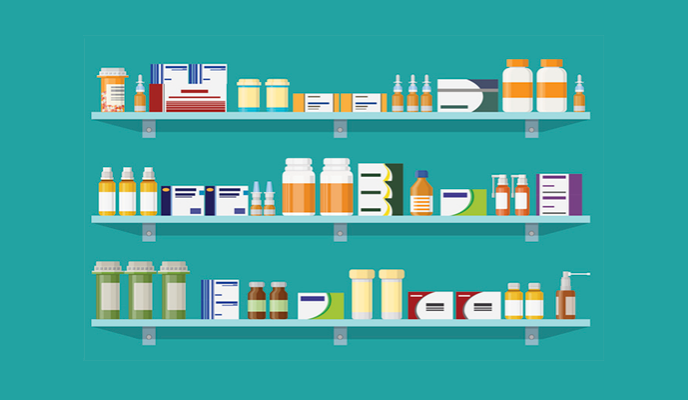Trump Issues New Rules to Lower Prescription Drug Pricing
Part of the Trump Administration’s efforts to lower prescription drug pricing, the rules could save seniors billions of dollars by eliminating middlemen and finalizing the Most Favored Nation Rule.

Source: Thinkstock
- President Trump recently issued two regulations to lower prescription drug pricing through a slew of new initiatives at aim prescription drug spending in Medicare.
The reforms are the direct result of the drug pricing executive orders the president signed back in July, which eliminated kickbacks to middlemen, increased drug importation, and increased access to affordable life-saving medications.
Currently, drug companies provide large discounts on the price of prescription medicines, including nearly $40 billion in rebates to Medicare Part D plans just last year.
Specifically, Medicare Part D premiums have decreased 12 percent since 2017, putting nearly $2 billion back into seniors’ pockets. But oftentimes, middlemen, such as pharmacy benefit managers, stop those discounts from going to the patients.
The new regulations will require that any Medicare Part D discounts go directly to the people, saving them nearly 30 percent annually.
“The savings could be 40 percent, could be 50 percent, could be much higher than that,” Trump said in the announcement. “These are numbers that nobody has ever even contemplated, and that doesn’t include lifesaving drugs like insulin, which will be even higher.”
The second rule that Trump finalized was the Most Favored Nations Rule, which will transform the way that the US government pays for drugs to end what his administration calls “global freeloading” on the backs of US patients.
In mid-September, the Trump administration signed an executive order to lower prescription drugs by “putting America first.”
In general, a Most Favored Nations approach to drug pricing establishes a trading opportunity among states by making originally bilateral agreements multilateral.
For drug pricing, this means leveraging international reference prices to lower drug costs.
In general, Americans pay nearly twice as much for the same drug as other countries. Therefore, the US would spend large amounts of money to provide inexpensive drugs to another country.
For example, Medicare Part B recipients spend five times more for a common breast cancer medication than patients in comparable countries.
Under the finalization of the Most Favored Nations Rule, the drugs covered under the most favored nation pricing scheme, which includes both Medicare Part B and Medicare Part D, will be expanded.
This initiative will allow Medicare to use the price that other developed nations pay for their drugs rather than paying the highest price on the list.
“We take the lowest price, and we match whatever the lowest price is, leading to colossal savings for all Americans,” Trump explained. “And we’re talking about savings of 50, 60, 70 percent, 80 percent — different drugs, different prices.”
Trump also announced the end of the Unapproved Drugs Initiative program, which has previously caused shortages of vital medicines. Drug prices may be lifted by 1,000 to 5,000 percent.
Currently, insulin costs for many seniors are capped at $35 a month, which saves them an average of nearly $500 to $1,000 a year just on insulin.
But in just a few weeks, the Trump Administration will finalize rules requiring federally funded health centers to pass drug company discounts on insulin and EpiPens directly to patients.
“Already, we’ve successfully lowered drug prices for the first time in 51 years,” Trump said. “Together, these reforms will save American patients many, many billions of dollars every single year.”
Alex Azar, Secretary of HHS, also commented on the new regulations:
“We’re bringing negotiation to the way we pay for the most costly drugs in Medicare, fixing a system where the government just took the price that drug companies offered, paying about twice as much as comparable countries. We’re ending a program that’s been used by drug companies to jack up prices on older drugs,” Azar said.
“The President’s actions today, boldly take on the big drug companies, take on the middlemen, and take on foreign countries freeriding off of Americans,” he concluded.
